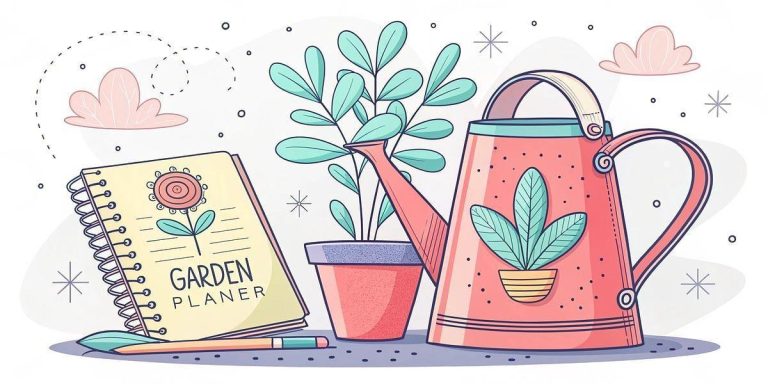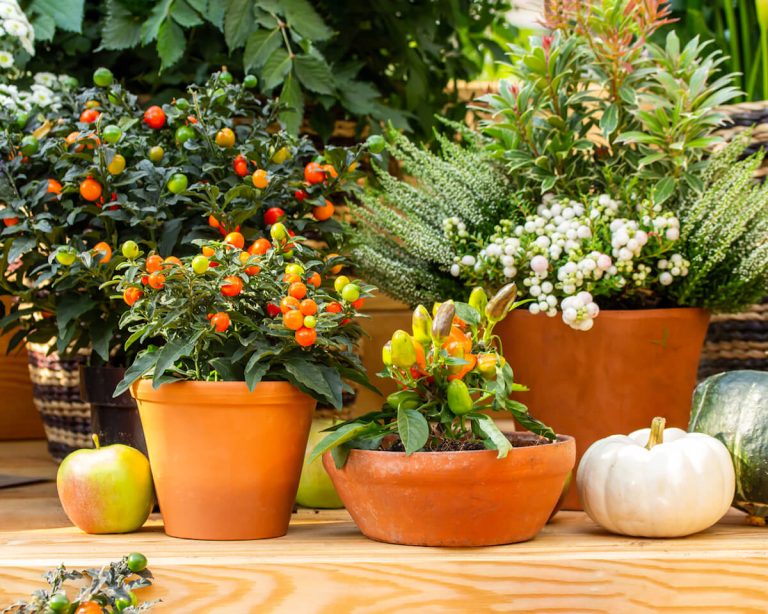Top 10 Organic Fruits and Vegetables to Grow at Home
If you’re new to organic gardening, you may be wondering which fruits and vegetables are the best to grow at home. Here are the top 10 organic fruits and vegetables that are well-suited for home gardening:
Tomatoes: Tomatoes are a popular choice for home gardeners, and for good reason. They are relatively easy to grow and can be enjoyed in a variety of dishes, from salads and sandwiches to sauces and soups. To get the best results, choose a sunny location and water regularly.
It is also important to provide proper support for your tomato plants, as they can grow tall and produce heavy fruit. You can use stakes, cages, or trellises to keep your plants upright and prevent them from toppling over.
Additionally, it is important to prune your tomato plants regularly to encourage healthy growth and to remove any diseased or damaged foliage. Overall, with proper care and attention, you can enjoy a delicious and productive harvest of tomatoes from your own home garden.
- Grow Your Own Veggies: From your indoor vegetable garden to your plate, enjoy unique, tasty veggies with this exotic vegetable growing kit! Our indoor vegetable garden kit comes with non-GMO, heirloom vegetable seeds for Romanesco Broccoli, Dragon Carrot, Rainbow Swiss Chard, and Lemon Cucumber. Whether this is your first time planting a vegetable garden starter kit or you’re already a veggie growing expert, these spade to fork gardening kits will help add color to your garden – and your plate!
- Everything You Need for Your Veggie Garden: This vegetable garden kit comes with 4 packets of exotic vegetable seeds, 4 burlap grow bags with waterproof lining, 4 potting soil disks, 4 bamboo plant markers, gardening shears, and a lined wood box that doubles as a planter. No need for any extra trips to the nursery! Use this veggie garden starter kit to start your garden anywhere: on the kitchen countertop, windowsill, balcony, porch, or even your outdoor garden.
- Expert Growing Support: When it comes to support, we’ve gone above and beyond. Our garden starter kit comes with a team of gardening experts and horticulturists available to answer questions, a Grower Help Bot through FB Messenger, detailed instructions, a private FB Grower Community, and instructional videos. You’re not just buying a vegetable seed starter kit — you’re getting guidance for your gardening journey!
- Unique Gifts for Gardeners: This indoor garden kit has all you need to get growing, making them one-of-a-kind gardening gifts for anyone with a green thumb! These complete kits make great gardening gifts for women, gardening gifts for men, or even a gardening gift for kids who are curious about exotic plants. The seeds can grow indoors or outdoors, so they’re perfect gifts for outdoorsy women or men and for homebodies looking to grow their indoor plant collection!
- Always Grown in the USA: At Garden Republic, our goal is to make the art of growing plants simple and accessible for everyone. We want your indoor gardening journey to be a successful one! Our heirloom vegetable seeds are always grown in the USA and are tested for the highest germination rates before they’re added to your seed packets. We started as a veteran and family-owned, small business focused on creating safe, sustainable products you can trust — a practice that continues to this day.
Last update on 2025-11-15 / Affiliate links / Images from Amazon Product Advertising API
Salad greens: Leafy greens such as lettuce, spinach, and arugula are easy to grow and can provide a steady supply of fresh, nutritious produce.
Salad greens are also well-suited to container gardening, as they do not require a lot of space and can be grown in a wide range of containers. Just be sure to choose a container with good drainage, and water regularly to prevent the soil from drying out.
Salad greens prefer well-draining soil that is rich in organic matter, such as compost or well-rotted manure. They also benefit from regular fertilization, especially with a balanced fertilizer that contains nitrogen, phosphorus, and potassium.
Salad greens can also be grown in raised beds or in-ground and can be grown from seeds or transplants. With proper care and attention, you can enjoy a steady supply of fresh, nutritious salad greens from your own home garden.
Carrots: Carrots are a cool-season crop that is well-suited to home gardens. They can be grown in a variety of soil types and are relatively easy to care for. Just be sure to choose a location with well-draining soil and water regularly.
Be sure to water regularly, as they need a consistent supply of moisture to grow properly. You may also need to thin out your carrot plants as they grow to ensure that they have enough space to develop their roots. With proper care and attention, you can enjoy a delicious and productive harvest of carrots from your own home garden.
Beets: Beets are another cool-season crop that is well-suited to home gardening. They are easy to grow and can be enjoyed in a variety of dishes, from salads to soups and roasted vegetables. Just be sure to choose a location with well-draining soil and water regularly.
Beets are also relatively easy to care for, as they do not require a lot of maintenance. Just be sure to water regularly, as they need a consistent supply of moisture to grow properly. You may also need to thin out your beet plants as they grow to ensure that they have enough space to develop their roots.
Squash: Squash is a warm-season crop that is easy to grow and provides a delicious, versatile addition to any meal. They can be grown in a variety of soil types.
Squash is also relatively easy to care for, as they do not require a lot of maintenance. Just be sure to choose a sunny location and water regularly, as they need a consistent supply of moisture to grow properly.
You may also need to provide support for your squash plants, as they can grow tall and produce heavy fruit. You can use stakes, cages, or trellises to keep your plants upright and prevent them from toppling over.
Beans: Beans are another easy-to-grow vegetable that can provide a steady supply of fresh produce. They can be grown in a variety of soil types and are well-suited to both container and in-ground gardens. Be sure to choose a sunny location and water regularly.
Beans prefer well-draining soil that is rich in organic matter, such as compost or well-rotted manure. They also benefit from regular fertilization, especially with a balanced fertilizer that contains nitrogen, phosphorus, and potassium. You can use organic fertilizers, such as compost or bone meal, to provide essential nutrients to your bean plants.
- 30 ESSENTIAL VARIETIES, 18,500+ SEEDS – Feed your family year-round with lettuce, tomatoes, peppers, beans, carrots, squash, cucumbers, cabbage, broccoli, kale, melons, beets, radishes, greens, okra, herbs, and fruit. Everything you need for a complete home garden.
- BEGINNER-FRIENDLY & GUARANTEED TO GROW – 100% non-GMO, open-pollinated heirloom varieties you can save and replant forever. Complete growing instructions on every packet. Perfect for first-time gardeners and experienced growers alike. No green thumb required.
- FAST HARVESTS IN ALL CLIMATES – Pick fresh lettuce in 30 days, tomatoes in 90. Cool and warm-weather crops thrive in all USA growing zones. Perfect for raised beds, containers, or traditional gardens. Year-round food security starts here.
- FOOD SECURITY AND STORAGE – Assorted heritage seeds are packed in labeled envelopes inside a resealable waterproof vault bag for emergency prep supplies, long-term storage, and gifts for homesteaders, survivalists, preppers, and vegetable gardeners.
- FAMILY OWNED USA SMALL BUSINESS – Heirloom non-GMO seeds from Survival Garden Seeds, a trusted American brand; always open-pollinated, untreated, and quality tested for garden success
Last update on 2025-11-15 / Affiliate links / Images from Amazon Product Advertising API
Peppers: Peppers are a warm-season crop that is well-suited to home gardening. They can be grown in a variety of soil types and are relatively easy to care for. Just be sure to choose a sunny location and water regularly.
You may also need to provide support for your pepper plants, as they can grow tall and produce heavy fruit. You can use stakes, cages, or trellises to keep your plants upright and prevent them from toppling over.
Eggplants: Eggplants are a warm-season crop that is well-suited to home gardening. They can be grown in a variety of soil types and are relatively easy to care for. Just be sure to choose a sunny location and water regularly.
Cucumbers: Cucumbers are a warm-season crop that is easy to grow and provides a refreshing addition to any meal. They can be grown in a variety of soil types and are well-suited to both container and in-ground gardens. Just be sure to choose a sunny location and water regularly.
Strawberries: Strawberries are a popular choice for home gardeners, and for good reason. They are relatively easy to grow and provide a delicious, sweet treat that can be enjoyed fresh or used in a variety of dishes. To get the best results, choose a sunny location and water regularly.
You may also need to provide support for your strawberry plants, such as using a straw mulch to keep the fruit off the ground and prevent rot.
Conclusion
By growing these 10 organic fruits and vegetables, you can enjoy a steady supply of fresh, nutritious produce all season long. With a little planning and effort, you can have a thriving organic garden that provides delicious and healthy food for your family and friends.
As you plan your organic garden, it’s important to remember that different fruits and vegetables have different growing requirements. Be sure to do your research and choose plants that are well-suited to your climate and soil type, and follow the recommended planting and care instructions to give your plants the best chance of success.
It’s also a good idea to start small and gradually expand your garden as you gain experience. This can help to reduce the risk of failure and allow you to learn from any mistakes you may make along the way.
Finally, be sure to keep track of your garden and make note of what works well and what doesn’t. This can help you to fine-tune your gardening techniques and make adjustments as needed.
With a little patience and persistence, you can enjoy the many benefits of growing your own organic fruits and vegetables at home. Whether you’re a seasoned pro or a beginner, there’s always something new to learn and discover in the world of organic gardening.









